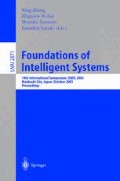Abstract
School timetabling is typically hard to resolve and the problem gets harder when teaching resources are scarce. The need for supporting stringent teaching requirements such as co-teaching and split-class teaching complicates the problem even more. In this paper, we describe an automated school timetabling system called @PT that reasons about sophisticated timetabling requirements. @PT makes use of a number of intelligent techniques including constraint technology, heuristics, local search operators, and tabu-list like data structure. It also changes its search behavior dynamically at run-time. Experimental results show that @PT is robust and manages to solve real problem instances effectively within minutes.
Access this chapter
Tax calculation will be finalised at checkout
Purchases are for personal use only
Preview
Unable to display preview. Download preview PDF.
References
Burke, E., Erben, W. (eds.): PATAT 2000. LNCS, vol. 2079. Springer, Heidelberg (2001)
David, P.: A constraint-based approach for examination timetabling using local repair techniques. In: Burke, E.K., Carter, M. (eds.) PATAT 1997. LNCS, vol. 1408, pp. 169–186. Springer, Heidelberg (1998)
Gotlieb, C.C.: The construction of class-teacher time-tables. In: Popplewell, C.M. (ed.) Proceedings of IFIP Congress, Amsterdam, North-Holland 62, pp. 73–77 (1963)
Haralick, R.M., Elliott, G.L.: Increasing tree search efficiency for constraint satisfaction problems. Artificial Intelligence 14, 263–313 (1980)
Kaneko, K., Yoshikawa, M., Nakakuki, Y.: Improving a heuristic repair method for large-scale school timetabling problems. In: Jaffar, J. (ed.) CP 1999. LNCS, vol. 1713, pp. 275–288. Springer, Heidelberg (1999)
Kwan, A.C.M., Chung, K.C.K.: A contention-oriented timeslot selection heuristic for school timetabling. In: Bramer, M., Preece, A., Coenen, F. (eds.) Proceedings of the 22nd SGAI International Conference on Knowledge Based Systems and Applied Artificial Intelligence, pp. 381–394. Springer, Heidelberg (2002)
Kwan, A.C.M., Chung, K.C.K., Yip, K.K.K.: Data Modeling for School Timetabling - A Case Study. In: Torrellas, G.A.S., Uskov, V. (eds.) Proceedings of the 5th IASTED International Multi-Conference on Computers and Advanced Technology in Education, pp. 211–215. ACTA Press (2002)
Kwan, A.C.M., Chan, H.L.: Efficient lesson selection heuristic for high school timetabling. In: Hamza, M.H. (ed.) Proceedings of the IASTED International Conference Artificial Intelligence and Soft Computing, pp. 323–327. ACTA Press (1999)
Merlot, L., Boland, N., Hughes, B., Stuckey, P.J.: A hybrid algorithm for the examination timetabling problem. In: Burke, E.K., De Causmaecker, P. (eds.) PATAT 2002. LNCS, vol. 2740, pp. 207–231. Springer, Heidelberg (2003)
Minton, S., Johnston, M.D., Philips, A.B., Laird, P.: Minimizing conflicts: a heuristic repair method for constraint satisfaction and scheduling problems. Artificial Intelligence 58, 161–205 (1992)
Ng, W.-Y.: TESS: an interactive support system for school timetabling. In: Fung, A.C.W. (ed.) Information Technology in Education Management for the Schools of the Future, pp. 131–137. Chapman and Hall, Boca Raton (1997)
Sadeh, N.: Lookahead techniques for micro-opportunistic job-shop scheduling. PhD thesis, Carnegie-Mellon University, CMU-CS-91-102 (1991)
Schaerf, A.: Combining local search and look-ahead for scheduling and constraint satisfaction problems. In: Proceedings of the International Joint Conference on Artificial Intelligence, pp. 1254–1259 (1997)
Schaerf, A.: A survey of automated timetabling. Artificial Intelligence Review 13(2), 87–127 (1999)
Schmidt, G., Strohlein, T.: Timetabling construction – an annotated bibliography. The Computer Journal 23(4), 307–316 (1979)
Yoshikawa, M., Kaneko, K., Nomura, Y., Watanabe, M.: A constraint-based approach to high-school timetabling problems: a case study. In: Proceedings of the 12th National Conference on Artificial Intelligence, pp. 1111–1116 (1994)
Author information
Authors and Affiliations
Editor information
Editors and Affiliations
Rights and permissions
Copyright information
© 2003 Springer-Verlag Berlin Heidelberg
About this paper
Cite this paper
Kwan, A.C.M., Chung, K.C.K., Yip, K.K.K., Tam, V. (2003). An Automated School Timetabling System Using Hybrid Intelligent Techniques. In: Zhong, N., Raś, Z.W., Tsumoto, S., Suzuki, E. (eds) Foundations of Intelligent Systems. ISMIS 2003. Lecture Notes in Computer Science(), vol 2871. Springer, Berlin, Heidelberg. https://doi.org/10.1007/978-3-540-39592-8_18
Download citation
DOI: https://doi.org/10.1007/978-3-540-39592-8_18
Publisher Name: Springer, Berlin, Heidelberg
Print ISBN: 978-3-540-20256-1
Online ISBN: 978-3-540-39592-8
eBook Packages: Springer Book Archive

